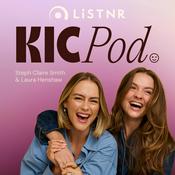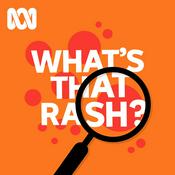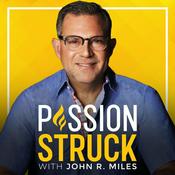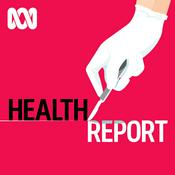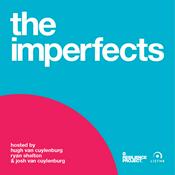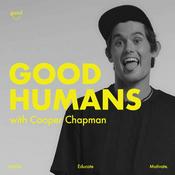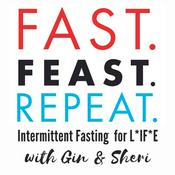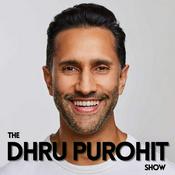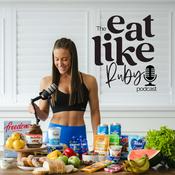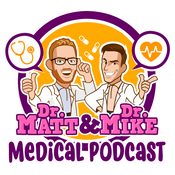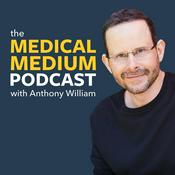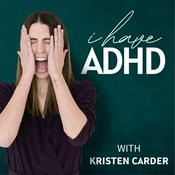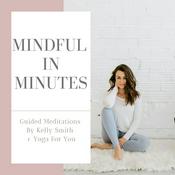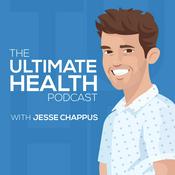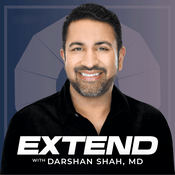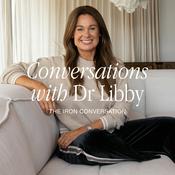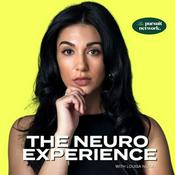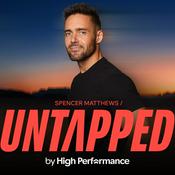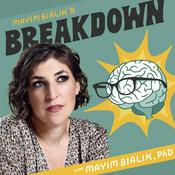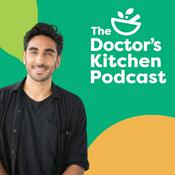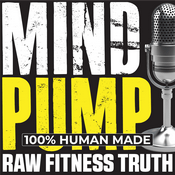40 episodes
- Host & Guest: Kate Brownfield, Certified Whole Person & ADHD Parent Coach
Episode Description
Hi, it’s Kate Brownfield from ADHDKidsCanThrive.com. In this solo episode, I’m talking directly to you, the parent who wants the holidays to feel a little less chaotic and a lot more grounded for your ADHD child and your family.
The holidays can be gorgeous and fun… and they can also be really hard. Extra noise, broken routines, travel, sugar, relatives, expectations, it all adds up, especially for a sensitive ADHD nervous system (yours and your child’s). In this conversation, I walk you through simple, doable ways to lower the volume on holiday overwhelm and build a plan that actually protects everyone’s capacity.
My hope is that this episode feels like a steady hand on your shoulder and gives you a few concrete, compassionate tools you can start using right away.
In this episode, we talk about:
Why holidays feel “louder” for ADHD families
How excitement, uncertainty, and social demands overstimulate ADHD nervous systems and why that’s not a parenting failure.
Three daily anchors to protect regulation
A simple “map the day” framework that protects sleep, screens, and movement without turning your home into a military schedule.
Getting extended family on the same page (without drama)
How to kindly give relatives a clear role in a cozy connection, rather than acting as behavior police, and use short, simple limits with your child.
Making the day visible for your ADHD child
Using checklists, visual schedules, and quick previews helps your child know what’s coming and what’s expected versus what's unexpected.
The 60-second spike reset for you and your child
A quick reset you can use when emotions spike: one long breath, one next step, one tiny, concrete choice.
Planning for expected fidgeting and big feelings
How to meet your child where they are developmentally, and give them a plan for restlessness, boredom, or sibling conflict.
If You Need More Support
If you’re heading into a hard season or you want a clearer plan, you can always find me at ADHDKidsCanThrive.com for education, coaching, and tools to support your ADHD child and your family.
If this episode is helpful, please share it with another parent who might need a little steadiness and support this holiday season.
Wishing you and your ADHD kiddo a warm, gentle, and truly happy holiday. Julia Ross on Amino Acids, Mood, Cravings, and Attention: Practical Nutrition Ideas for ADHD Families
10/11/2025 | 47 mins.Host: Kate Brownfield, Certified Whole Person & ADHD Parent Coach
Guest: Julia Ross, bestselling author of The Mood Cure, The Diet Cure, and The Craving Cure; pioneer in nutrient-based therapies; director of a global virtual clinic and professional training.
Episode Overview
Kate sits down with mood and cravings expert Julia Ross to explore how targeted nutrients and protein-forward eating patterns may support mood stability, cravings, sleep, and attention, especially in ADHD families. Julia shares stories from decades of clinical work, why “context drives capacity” for brains under stress, and how simple nutrition shifts can complement (not replace) therapy and medication.
What We Cover
From psychotherapy to nutrients: why the addiction and mood field began testing amino acids alongside counseling.
Five key neurotransmitter systems and the amino acids commonly discussed to support them (education, not medical advice):
Tyrosine → focus/energy support
Tryptophan → serotonin/mood/sleep support
GABA → calming/“reduce extra adrenaline” support
Endorphin support → comfort, reduced “junk food only” pull
Glutamine → hypoglycemia/cravings support
Food first: why consistent animal-protein intake (plus balanced meals—“three squares”) may matter for mood and attention, and how ultra-processed foods complicate the picture.
Practical tips with kids: creative ways to deliver supplements if a child won’t swallow capsules; previewing and monitoring effects; starting low and going slow.
Working with meds: how some families explore nutrients hours away from stimulant dosing and then collaborate with prescribers if they see benefits.
Screening tools & resources: Julia’s five-part symptom questionnaire, and an updated handbook for getting started.
Key Takeaways
Nutrition can be a complementary lever for improving mood, managing cravings, enhancing sleep, and improving attention, best used in conjunction with medical care, therapy, routines, and good sleep hygiene.
Protein at breakfast and steady meals helps prevent the “crash → crave” loop.
If you experiment with nutrients, track one change at a time, observe effects, and coordinate with your clinician, especially for kids, pregnancies, and anyone on medication.
What “works” is individualized; expect small trials + careful notes rather than a one-size-fits-all protocol.
Resources Mentioned
Books by Julia Ross: The Mood Cure, The Diet Cure, The Craving Cure
Website & questionnaire: JuliaRossCures.com
(Mentioned) James Greenblatt, MD — Finally Focused (nutrient psychiatry for ADHD)
Important Note
This episode is for educational purposes only and is not medical advice. Nutrients can interact with medications and conditions (including lithium, amino acids, melatonin, etc.). Consult your child’s clinician before starting, stopping, or combining any supplement or medication.
Connect with Kate: ADHDKidsCanThrive.com | Coaching inquiries: https://adhdkidscanthrive.com/appointment/
Enjoyed this episode? Follow, rate, and share with a friend who could use practical, hopeful tools.- Host: Kate Brownfield, Certified Whole Person & ADHD Parent Coach
Guest: Dr. Kate Lund, clinical psychologist, peak performance coach, TEDx speaker, and author of Step Away: The Keys to Resilient Parenting
Episode Overview
In this empowering “Kate + Kate” episode, Kate talks with Dr. Kate Lund about what resilient parenting really looks like when you’re raising kids with ADHD, big emotions, or health challenges. Drawing from her own medical journey (hydrocephalus as a child), 20+ years as a psychologist, and parenting 18-year-old twins, Dr. Lund explains resilience not as “pushing through,” but as a lifestyle: managing your stress response daily so you can ride the waves of homework battles, morning chaos, and dysregulated kids. She teaches a simple, science-backed tool, the Relaxation Response, that parents can practice for 5 minutes in the morning and at night to lower reactivity, model calmness, and create a more regulated home.
Suppose your baseline feels higher than that of other parents because your child is more intense or more dysregulated. In that case, this episode will help you stop comparing, honor your unique context, and build steadiness that you can actually sustain.
What We Talk About (Highlights)
Resilience as a lifestyle
Managing your stress response
The Relaxation Response (Herbert Benson)
Modeling regulation
Avoiding the comparison trap
“Step away” moments
Ripple effect for ADHD families: Calm first, then coach skills
Resources & Links
Guest: Dr. Kate Lund https://www.katelundspeaks.com/
Book: Step Away: The Keys to Resilient Parenting https://www.katelundspeaks.com/book
About Your Host, Kate
I’m Kate Brownfield, Certified Whole Person & ADHD Parent Coach, author of How We Roll: A Parent’s Journey Raising a Child with ADHD, and host of The ADHD Kids Can Thrive Podcast. I help parents understand ADHD through a whole-person lens—because every child is unique, and so is every family.
🌐 Find me: ADHDKidsCanThrive.com
Enjoyed this episode?
Subscribe to The ADHD Kids Can Thrive Podcast
Share this with a parent who’s parenting from a high baseline and needs a 5-minute tool today 💛 - Host: Kate Brownfield, Certified Whole Person & ADHD Parent Coach
Guest: Dr. Kate Lund, clinical psychologist, peak performance coach, TEDx speaker, and author of Step Away: The Keys to Resilient Parenting
Episode Overview
In this empowering “Kate + Kate” episode, Kate talks with Dr. Kate Lund about what resilient parenting really looks like when you’re raising kids with ADHD, big emotions, or health challenges. Drawing from her own medical journey (hydrocephalus as a child), 20+ years as a psychologist, and parenting 18-year-old twins, Dr. Lund explains resilience not as “pushing through,” but as a lifestyle: managing your stress response daily so you can ride the waves of homework battles, morning chaos, and dysregulated kids. She teaches a simple, science-backed tool—the Relaxation Response—that parents can practice for 5 minutes morning and night to lower reactivity, model calm, and create a more regulated home.
If your baseline feels higher than other parents’ because your child is more intense or more dysregulated, this episode will help you stop comparing, honor your real context, and build steadiness you can actually sustain.
What We Talk About (Highlights)
Resilience as a lifestyle: Why it’s daily stress modulation, not one heroic moment.
Managing your stress response: If we start “high,” every challenge spikes us to shutdown.
The Relaxation Response (Herbert Benson): Choose a soothing word/phrase + breathe → practice 5 minutes a.m./p.m.
Modeling regulation: Regulated parent → calmer energy in the house → kids see what’s possible.
Avoiding the comparison trap: Your life, your child, your bandwidth—design for your context.
“Step away” moments: Why parents sometimes need a 5-minute reset before re-engaging.
Ripple effect for ADHD families: Calm first, then coach skills (homework, mornings, transitions).
Resources & Links
Guest: Dr. Kate Lund
Book: Step Away: The Keys to Resilient Parenting
Technique discussed: The Relaxation Response (Herbert Benson)
About Your Host, Kate
I’m Kate Brownfield, Certified Whole Person & ADHD Parent Coach, author of How We Roll: A Parent’s Journey Raising a Child with ADHD, and host of The ADHD Kids Can Thrive Podcast. I help parents understand ADHD through a whole-person lens—because every child is unique, and so is every family.
🌐 Find me: ADHDKidsCanThrive.com
Enjoyed this episode?
Subscribe to The ADHD Kids Can Thrive Podcast
Share this with a parent who’s parenting from a high baseline and needs a 5-minute tool today - Episode Summary
Child & adolescent psychiatrist Dr. Blaise Aguirre (McLean Hospital) shares DBT tools that help ADHD kids and their parents build emotional regulation before a crisis. We cover modeling calm, the mantra “regulate before you can reflect,” fast resets (breathing, PMR, ice-dive), and a practical, compassionate look at ADHD medication, what to watch, and how careful prescribing reduces risk.
Guest
Dr. Blaise Aguirre, Mood's leading psychiatrist and Assistant Professor of Psychiatry, Harvard Medical School. With 25+ years of treating over 7,000 children and adolescents at McLean Hospital, Dr. Aguirre has extensive experience helping ADHD kids develop emotional regulation skills and coping strategies for high-stress periods.
Episode Overview
Many kids labeled “misbehaving” are actually missing skills. Dr. Aguirre explains how DBT-based exercises taught early, practiced often, and modeled by parents become second nature and reduce meltdowns. You’ll learn why a parent’s steady nervous system matters (mirror neurons), how to de-escalate in the moment, and how to think about ADHD meds: quick signal checks, side-effect watching, and partnering with a responsive prescriber. Goal: fewer crises, more connection, and a resilient self-story for your child.
What We Talk About (Highlights)
Skills > “misbehavior”: teach what’s missing—don’t shame
Parents first: model regulation; your calm lowers their heat
Practice before you need it (make coping automatic)
Fast resets anywhere: slow breathing, progressive muscle relaxation, ice-dive
Medication basics: quick feedback loop for many stimulants, dose/side-effects to watch, work with a responsive prescriber
Protect the self-story: reduce invalidation (“lazy,” “stupid”) to prevent long-term harm.
Mirror neurons: your agitation amplifies theirs—stay steady
Resources & Links
Dr. Aguirre (McLean Hospital): https://www.mcleanhospital.org/profile/blaise-aguirre
Mood Tools App (free): https://www.mood.org/app
Books by Dr. Aguirre: https://www.amazon.com/stores/author/B001JP3X2W
About Your Host
Kate Brownfield, Certified Whole Person & ADHD Parent Coach; author of How We Roll: A Parent’s Journey Raising a Child with ADHD; host of The ADHD Kids Can Thrive Podcast. Every child with ADHD is unique—so are their strengths and struggles.
Website & coaching: ADHDKidsCanThrive.com
Get the first three chapters of How We Roll free: https://lp.constantcontactpages.com/sl/On1ABRH/first3chapters
Enjoyed this episode?
Subscribe to The ADHD Kids Can Thrive Podcast
Share with a parent who needs encouragement today.
Leave a quick rating/review—it helps other ADHD families find the show.
More Health & Wellness podcasts
Trending Health & Wellness podcasts
About The ADHD Kids Can Thrive Podcast
Join Kate, ADHD Parent Coach, Author, and host of The ADHD Kids Can Thrive Podcast, as she interviews experts and advocates in ADHD for parents who are raising a child with ADHD. She explores many different ADHD-related aspects for parents to consider along their journey to create a better life for their child and family. Learn more at https://adhdkidscanthrive.com/
Podcast websiteListen to The ADHD Kids Can Thrive Podcast, KICPOD and many other podcasts from around the world with the radio.net app
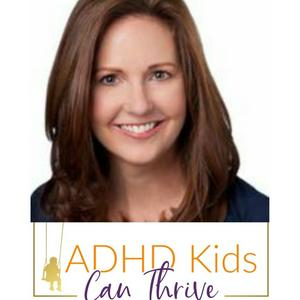
Get the free radio.net app
- Stations and podcasts to bookmark
- Stream via Wi-Fi or Bluetooth
- Supports Carplay & Android Auto
- Many other app features
Get the free radio.net app
- Stations and podcasts to bookmark
- Stream via Wi-Fi or Bluetooth
- Supports Carplay & Android Auto
- Many other app features


The ADHD Kids Can Thrive Podcast
Scan code,
download the app,
start listening.
download the app,
start listening.

